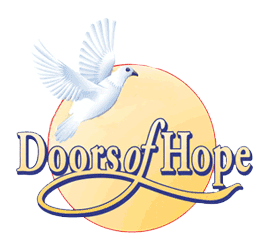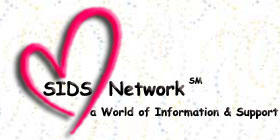   |
Because He Cares |
   |
Because He Cares |
| 48 End of Life Care Costs and Statistics for Families and Caregivers End of life care costs and statistics show a high cost of care in the last few months of life. The cost of hospital care, palliative care, and hospice care are part of end-of-life costs for most people. In the last month of life, hospital costs can add up to $32,379 and hospice care up to $17,845. In addition to medical care, the average funeral cost ranges from $750 for a cremation with no service to $15,500 for a burial with a service. Preparing for the end of life for a loved one is an emotional, turbulent time. From preparing funeral arrangements and legacy care to the uncertainty that comes with the end of life, to the specifics of end-of-life planning for veterans, this can be a stressful time for all involved — whether you’re family, a friend, or a caregiver. What can make an uncertain time even more difficult is not knowing the cost of certain parts of end-of-life care. Without a solid life insurance plan, some families may be left in the dark when it comes to saving for hospice care, hospital costs, burial and interment expenses, and other parts of end-of-life care. We’ve got you covered with recent statistics on end-of-life care costs, covering all the details you’ll need when planning how much to save for your loved one. Rest assured that though this may be a high-stress time, you can breathe easier by having a term life insurance plan in place that can help ease the financial stress. Table of Contents |
||
 Grief is a feeling of sadness as a result of any major loss. It is often associated with suffering, and is also considered a necessary part of healing. When an event causes a crisis in the life of an individual, a radical change is made in the situation established until then. Grief also has the meaning of ‘definitive loss’ of an object that an individual can hold. Table of Contents Defining Grief Stages of Grief Video: 5 Stages of Grief Explained Causes Risk Factors Types of Grief Physical Symptoms Mental Symptoms Expressions of Grief Grief and Addiction PLEASE VIEW COMPLETE DETAILS ON WEBSITE |
||
|
Alive Alone is an organization for the education and charitable purposes to benefit bereaved parents, whose only child or all children are deceased, by providing a self-help network and publications to promote communication and healing, to assist in resolving their grief, and a means to reinvest their lives for a positive future. |
|
BOOK |
SIDS  Sudden Infant Death Syndrome and Other Infant Death |
Holding Out the Light of Hope And the Hand of Friendship to Grieving Parents & Their Family |
Books |
Six
Steps to
Managing Loss |
Prince George Hospice Society |
|
| XXX Helpful Guidelines In A Death Experiencing the death of a loved one in the family poses many confusing questions. Particularly working out all the details and arrangements. It is my hope that these guidelines will assist in helping you to make informed decisions. Please note that most contact information is written for my community but the subject material is helpful for all those who need assistance working out the details of all that needs to be done. Immediate Things To Be Done Notify: Pastor/Priest/Religious Leader. Notify: other family members, by phone or letter if anyone is a long distance away. Notify: Friends, school and work related Manager/Supervisor or colleagues. Please keep a list of all names, from those who sent condolences, flowers, etc.. so a thank you card can be sent later. Viewing of your loved one: During the hours of 8:00am-8:00pm. the "Quick Response Worker" at Prince George Regional Hospital can assist in the viewing. Phone the Quick Response pager at 250-561-6339. or phone PGRH switchboard at 250-565-2000 and ask to be connected to the Quick Response person on call. Words of Condolences Please view this website; www.obituarieshelp.org/words_of_condolences_hub.html What to Write in a Sympathy Card Decide on funeral home Options: Prince George BC Assman’s Funeral Chapel Ph. 564-4431 Lakewood Funeral Home Ph. 562-5915 Prince George Funeral Home Ph. 564-3880 Call the Funeral Home to make an appointment. Note: Deciding on a funeral home does NOT need to be done the first day after death. A better time is, when other family members have arrived to make a more informed decision. Each of the funeral homes have some very dedicated staff who can assist you in many helpful ways. Please take someone along to the funeral home appointment - an individual who can keep notes. The funeral director will give some information which the family must do. Funeral Costs & Insurance Benefits
Notify Lawyer and /or In many cases all or part of the funeral expenses may be paid by one of the following: ICBC motor vehicle policy; work related policies, credit union, trade union, fraternal and/or military organization. Check the policies for Funeral expenses as well as long term survival benefits. Canada
Pension Plan - Death Benefit Funeral home will also assist in filling out Canada Pension Plan forms. Help for Those Dealing with a Sudden Death Workers
Compensation - Death Benefits
Funeral home directors can assist with details for most of the items below. Make complete list of family and friends who will be invited. Decide on type of funeral - Burial or Cremation. Decide on time and place where service will be held - Church or Funeral Home Chapel. Who will lead the service. Type of service, music, songs, select readings, special message by family or friends. Clothing for your loved one. Special items may be placed in the coffin: a special poem, farewells........ Pall Bearers - select and notify them - please keep in mind those who are unable to do this due to health or age reasons. Flowers and/or donations to a special cause. Funeral home can assist with special designated envelopes. Prepare memorial bulletin. Funeral home can assist in preparation and printing. Newspaper announcement. Name, Date of Birth, Picture, Family Relations, Time and Place of Service, Person who is Officiating. Other items to include: education, degrees, memberships held, military services, outstanding work, list of survivors in immediate family, etc.. After service reception, time and place. Death Certificates are available from Funeral Home Director. Please ask for several copies. The Funeral Service Association of BC has some helpful information on their website An autopsy is a medical examination of the body after death has occurred. The autopsy is performed at the hospital by a specialist in the medical field of pathology, in an effort to determine the exact cause of death. There are times when the attending physician may request the autopsy, or the family themselves may request one. In some circumstances, a coroner may be required to investigate the
death, and if required, he/she has the authority to order an autopsy
without the consent of the next-of-kin. The physician provides the funeral director with a completed
"Physicians Medical Certification of Death", which in turn must be
submitted to the local division registrar before the death can be
officially registered and a burial permit issued. The Vital Statistics
Act, however, prohibits the funeral director or anyone else to breach
the confidentiality of this document. Therefore, the immediate and
antecedent causes of death cannot be divulged to anyone. Family
members may wish to know the exact cause of death of the deceased.
This information and all autopsy results are made available to
immediate family members trough the attending physician or the coroner
only. It is necessary then, for family members to make a follow-up
appointment with the doctor or coroner to obtain this information.
Please allow about six weeks for the full autopsy report to be
available.
For a FULL report on the role of the Coroner please go to: Coroner Role
|
| Compassionate Friends Supporting Family When A Child Dies The Compassionate Friends is an international, voluntary, self-help organization share the anger as well as the peace, share the faith as well as the doubts, and help each other to grieve as well as to grow We need not walk alone - we are the compassionate friends The Compassionate Friends of Canada. Inc. More Links No One Told Me About Vacations
|
How it all began The Compassionate Friends was founded in Coventry, England in 1969, following the deaths of two young boys, Billy Henderson and Kenneth Lawley, the previous spring. Billy and Kenneth had died just three days apart in the Coventry and Warwickshire Hospital where Rev. Simon Stephens was Assistant to the Chaplain. Simon mentioned Billy's death to Iris and Joe Lawley, and the Lawleys decided to send flowers to Billy's funeral. They signed the card simply, "Kenneth's parents," realizing that the Hendersons would know who they were. Bill and Joan Henderson then invited the Lawleys over for tea, and an immediate bond was formed as the two couples spoke freely about their boys, sharing their memories and the dreams that had died with Billy and Kenneth. They continued to get together regularly, and young Rev. Stephens, then only 23, encouraged them to invite other newly bereaved parents to join them. In 1969 another grieving mother accepted their invitation to meet with Simon and the two couples. They decided to organize as a self-help group and actively begin reaching out to newly bereaved parents in their community. Because the word "compassionate" kept coming up, this new organization was called "The Society of the Compassionate Friends." Simon became a chaplain in the British Royal Navy in the 70's. He was met by bereaved parents at ports around the world, and he helped them to develop their own chapters. TCF had become well-known through U.K. and U.S.A. editions of such magazines as Time and Good Housekeeping. Paula and Arnold Shamres of Florida read Simon's interview in Time Magazine and invited him to visit them in Florida and speak to bereaved parents there. He did, and the Shamres subsequently founded the first U.S. chapter in 1972. Word of the organization spread rapidly through interest generated by the Phil Donahue Show and the columns of Dear Abby and Ann Landers. The Compassionate Friends was incorporated in the United States as a non-profit organization in 1978. In 1989 The Compassionate Friends of Great Britain dedicated a plaque commemorating the founding of the organization, at the Coventry and Warwickshire Hospital where TCF had begun. The plaque was unveiled by their patron, Countess Mountbatten, herself a bereaved parent. Then in November, 1994 Queen Elizabeth presented Iris Lawley with a medal, The Most Excellent Order of the British Empire, in recognition of her work on behalf of TCF. There are now Compassionate Friends chapters in every state in the United States—almost 600 altogether—and hundreds of chapters in Canada, Great Britain and other countries throughout the world. In the United States, chapters are open to all bereaved siblings and other family members who are grieving the death of a child of any age, from any cause |
Over 750,000 hits have been generated since January - 2005
|